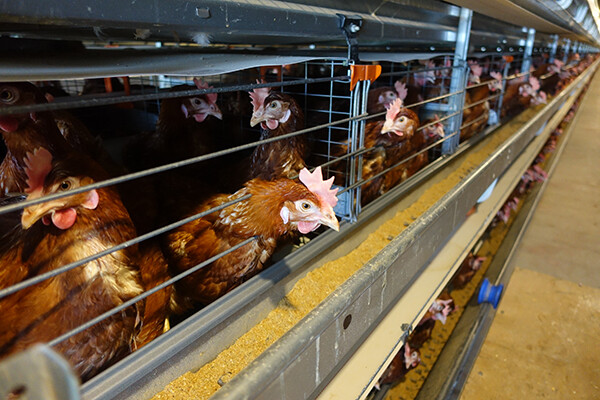
Seoul, South Korea – South Korea has delayed the implementation of new regulations designed to improve the living conditions of laying hens, citing concerns about the financial burden on poultry farmers. The Ministry of Agriculture, Food and Rural Affairs announced that the mandatory increase in cage size, originally scheduled for September 2024, will now take effect in September 2027.
The decision to delay the reforms comes amid strong opposition from poultry farmers who argue that the required renovations are too costly and time-consuming. They have called for an even later implementation date, suggesting 2033.
The new regulations were introduced in 2018 following a food safety scandal involving contaminated eggs. The incident highlighted the poor living conditions of many laying hens, which were often confined to cramped cages. To address these concerns, the government mandated a 50% increase in cage size.
However, poultry farmers have argued that the transition to larger cages would require significant investments in new facilities, and many have expressed concerns about the financial implications. The government has provided financial support to help farmers with the renovations, but industry representatives contend that it is insufficient.
“We cannot be expected to replace decades-old facilities in such a short timeframe,” said Andu-young, president of the Korean Layer Association. “Farmers who invested in their facilities before the regulations were introduced should not be retroactively penalized.”
The poultry industry has also raised concerns about the potential impact on egg prices. A study by the Korea Rural Economic Institute estimated that the new regulations could lead to a 33% decrease in egg production, resulting in a 57% increase in egg prices.
While the government acknowledges the challenges faced by farmers, it maintains that improving animal welfare is a priority. “Improving the living conditions of laying hens is a promise we made to the public,” said a spokesperson for the Ministry of Agriculture, Food and Rural Affairs. “We have already granted a seven-year grace period for farmers to make the necessary adjustments, and we must balance the needs of the industry with the welfare of animals.”
Despite the delay, animal welfare advocates have expressed disappointment with the government's decision, arguing that it undermines efforts to improve the lives of farm animals.
[Copyright (c) Global Economic Times. All Rights Reserved.]






























